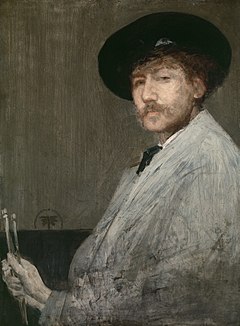Wikipedia:Wikipedia Signpost/2011-02-07/Features and admins
Features and admins
The best of the week

This week's "Features and admins" covers Saturday 29 January – Friday 4 February (UTC)
New administrators
The Signpost welcomes four editors as our newest admins.
- Smartse (nom), from the UK, has been editing consistently for the last two years, having made around 18,000 edits; he is a member of WikiProject WikiProject Molecular and Cellular Biology and WikiProject Plants, and does "a fair bit of gnoming". He is an experienced participant at Wikipedia:Conflict of interest/Noticeboard, and has been assisting at WP:CSD, WP:PROD and WP:AfD.
- Gonzonoir (nom), also from the UK, works in new-page patrolling, Speedy deletion, WP:AfD, the help desk, and providing assistance to new users. She also gives assistance to editors in the paraphrasing vs. direct quotation issue, an issue of increasing prominence.
- Ponyo (nom) (who signs as Jezebel's Ponyo), is from British Columbia. She has been working on BLP clean-ups, and is interested in helping out at BLPPROD and PROD backlogs. Ponyo plans to contribute to WP:RFPP and CSD, using her experience with the criteria relevant to recent changes and new-page patrol.
- Acdixon (nom), from Kentucky, is an MSc graduate of Western Kentucky University in Computer Science. He expects to use the tools mainly to move pages over redirects when it makes sense to do so, and to impose short periods of semi-protection in cases of persistent, obvious IP vandalism. Acdixon is active in article creation and content improvement, particularly in Kentucky-related topics.
At the time of publication there are two live RfAs: 5 albert square, due to finish 7 February, and ErikHaugen, due to finish 10 February.
Featured articles


- Nikolai Kulikovsky (nom) (1881–1958), a military officer who married into the Russian royal family. (Nominated by DrKiernan).
- Ian Dougald McLachlan (nom) (1911–90), a senior commander in the Royal Australian Air Force in four theatres and campaigns during World War II. (Ian Rose).
- M-6 (Michigan highway) (nom), almost 32 years in the making—an on-again off-again project that cost $22M a kilometre; it included the first single-point urban interchange in the state. (Imzadi1979).
- Walden–Wallkill Rail Trail (nom), a scenic five-kilometre route between two villages in Upstate New York. A rail-trail has been converted from a disused railway easement into a multi-use path, typically for walking, cycling and sometimes horse riding (Gyrobo).
- Action of 1 January 1800 (nom), a naval battle of the "Quasi-War" that took place off the coast of present-day Haiti. (XavierGreen).
- Psilocybe semilanceata (nom), the most common psilocybin-containing mushroom (Sasata; picture at right.)
Featured lists
Four lists were promoted:
- List of selected stars for navigation (nom) (Nominated by Haus).
- Linkin Park discography (nom) (Neo139).
- List of Premiers of the Soviet Union (nom) (Trust Is All You Need; picture at right.)
- List of Oxford United F.C. records and statistics (nom) (Eddie6705).
Featured pictures

- Whistler self-portrait (nom; related article), Arrangement in gray: portrait of the painter, c. 1872, by the notable American painter (1834–1903)—a wit, a dandy, and a shameless self-promoter who influenced the art world and the broader culture of his time with his artistic theories and his friendships with leading artists and writers. The painting is held by the Detroit Institute of Arts. picture at right
- The Castello Plan (nom; related article), the redrawn version from 1916 by John Wolcott Adams and Isaac Newton Phelps Stokes of a 1660 map of Lower Manhattan, New York City, created by Jacques Cortelyou, surveyor of New Amsterdam at the time. Around 1667, cartographer Joan Blaeu bound the plan, together with other hand-crafted New Amsterdam depictions, to an atlas, which he sold to Cosimoc III de’ Medici, a transaction that probably occurred in Amsterdam. The plan arrived in Italy, where it was found in Villa di Castello near Florence in 1900. (picture at top)
- Canadian Museum of Civilisation, Gatineau (nom; related article), Canada's national museum of human history, its most-visited museum, receiving more than 1.3 million visitors annually. (Created by Wladyslaw; picture at bottom.)
- 1933 Double Eagle Coin (obverse side) and 1933 Double Eagle Coin (reverse side) (nom; related article), an American gold coin of which nearly half a million were minted in 1933, the last year of production for the Double Eagle. No specimens ever officially circulated and nearly all were melted down when the domestic gold standard was terminated in 1933. (Scanned from the US Mint Pressroom Image Library website).

Information about new admins at the top is drawn from their user pages and RfA texts, and occasionally from what they tell us directly.


Discuss this story